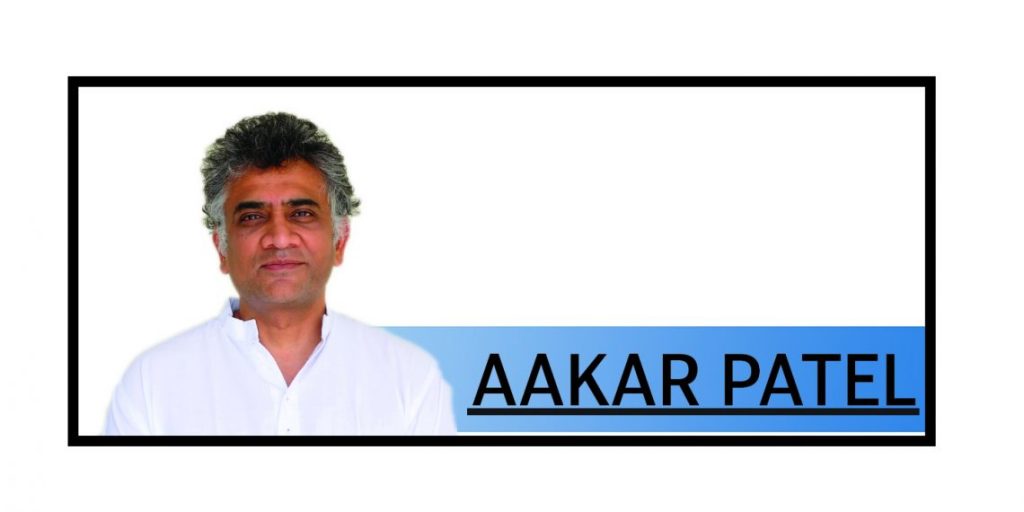Someone observed that the last two years seem as one. We began 2020 with the pandemic and are ending 2021 with it but that’s not the only similarity. Internal turmoil, tension on the border and an economy that was limping since 2017 seem to all be with us more or less permanently. What can we expect from 2022? Let us consider this.
Perhaps we should begin from the place that has become frozen in time: Kashmir. We undid the constitutional guarantees Kashmiris had but were unable to deliver to them anything better. They are not democratically governed today (the only such part of the country), nobody has invested there, the Pandits have not returned and the violence remains. This year saw more killings than each year from 2011 to 2015 and there is no sign that this will abate. We have lost interest from there and moved on as a nation. Few know that the main mosque of Srinagar is closed for Friday prayer. The government worries that if this is allowed, what the people feel will be expressed. In 2022, we should expect this to continue because so far as is visible, India has no plan for Kashmir.
Ladakh might see a thaw on the border if recent news is to be believed. This disengagement will be on China’s terms, purely because we have not accepted that there is intrusion so from our side there is no pressure for a return to the status quo ante of February 2020. That is very difficult terrain and it is quite certain that both sides, which are there in the tens of thousands, are suffering. Given this, and the fact that China apparently has what it wanted — which is access up to the 1959 claim line — we should see some lessening of tension on their terms. The small group of people who write on national security will say this is a setback but since the government controls the narrative almost entirely, this will not matter. Meanwhile, our alliance with the United States, Australia and Japan against China has more or less ended and America has aligned on security against China with Australia and UK.
On the economy, there is no pressure on the government to perform. We can say this because a decline in GDP growth had been noticed since January 2018 and continued for two years and three months before the pandemic and the first lockdown. So the trouble we are in is unrelated to the pandemic. Next year our GDP output will be the same size as it was before the pandemic but before the pandemic we were already struggling for a long time. That will continue. Two of the main causes of this will continue to puzzle economists. First, the fact that India’s rate of labour participation (those working or looking for work) is among the lowest in the world. Second that private consumption, the largest component of GDP by far, remains at pre-pandemic levels and shows no signs of revival.
Politically we have plenty of action. States that will have new Assemblies include Gujarat, Punjab, Goa and Uttar Pradesh. The BJP has been in a permanent majority in Gujarat for a quarter century and has had over a 40 per cent vote share in UP, meaning that the odds are that it will retain the state. The presidential election is also this year, just after UP.
What else? The Central Vista will be inaugurated, or at least some part of it; and substantial work will have been done on the temple in Ayodhya. There will be more pageantry of the sort we saw in Kashi earlier this year, for those who like that sort of thing.
There are currently few or no protestors on long term protest in India, which is the first time that this has happened since the beginning of 2020. But the North-East is rebelling against AFSPA and the Union government will have to ensure that this doesn’t turn into a problem in a part of the country that is always restive. Nagaland’s Assembly (including all the BJP members) passed a unanimous resolution against the law’s continuance in their state. It will be a stark comment on democracy in the North-East if Delhi chooses to impose itself despite this vote. We shall see.
The pandemic will itself continue, but we can hope that it does not do the damage that it did either in 2020 or in 2021. It may have escaped the attention of many but there will be substantial long-term damage to India because of the lack of access to education for a generation of children. How many have the ability to ‘learn from home’ and the equipment to allow them to do so? The majority does not and their learning will suffer so this is one part of the pandemic we will carry with us into the future.
It has been a very hard last four years for India on most fronts. The wish is that 2022, if not bring us into happier times, at least sees some easing of the pain.
